- DETERRENCE: Report on nuclear employment strategy of the United States specified in section 491 of 10 U.S.C.
- DPRK: Panama seizes Korean ship, and sugar-coated arms parts
- ENERGY SECURITY: After Sandy, New York aims to fortify itself against next big storm, climate change
- GOVERNANCE AND CIVIL SOCIETY: China’s North Korean pivot
- CLIMATE CHANGE ADAPTATION: Building urban resilience: principles, tools, and practice
- CLIMATE CHANGE AND SECURITY: Climate change, security and peace: the role of the European Union
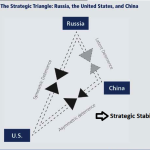 DETERRENCE: Report on nuclear employment strategy of the United States specified in section 491 of 10 U.S.C., US Department of Defense to US Congress (June 2013) [PDF, 0.5MB]
DETERRENCE: Report on nuclear employment strategy of the United States specified in section 491 of 10 U.S.C., US Department of Defense to US Congress (June 2013) [PDF, 0.5MB]
This DOD report commences the translation of Obama’s presidential nuclear guidance into operational doctrine and practice. It specifies that US nuclear forces maintain and improve “strategic stability” in relation to China–the first time that this goal has been stated officially.
- Fact sheet: nuclear weapons employment strategy of the United States, White House (19 June 2013)
- Nuclear weapons and U.S.-China relations, a way forward, PONI working Group on US-China Nuclear Relations, Center for Strategic and International Studies (12 March 2013) [PDF, 3.4MB]
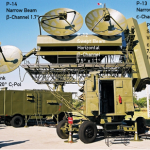 DPRK: Panama seizes Korean ship, and sugar-coated arms parts, Rick Gladstone and David E. Sanger, New York Times (16 July 2013)
DPRK: Panama seizes Korean ship, and sugar-coated arms parts, Rick Gladstone and David E. Sanger, New York Times (16 July 2013)
North Korea likely finds little maneuver room in Northeast Asia. It seems to be searching for ways around neighbors mostly agreed upon not accepting certain North Korean behaviors. China remains cordial, but waxy in its support for North Korea as China increasingly signals a “normal” relationship with North Korea instead of a “special” relationship. North Korea’s role in a new East Asian order is unclear since a new order is also unclear.
- Talks between DPRK, Cuban military delegations held, (North) Korean Central News Agency (2 July 2013)
- China presented a Kim Jong-il wax figure to North Korea in honor of friendly relations between the two people, Li Yamin, Beijing Daily (10 July 2013) [Chinese language]
- Korean Unification and a new East Asian order, Choi Jin-wook, Korea Institute for International Relations (31 December 2012) [PDF, 1.3 MB]
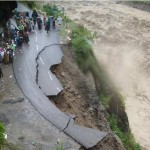 ENERGY SECURITY: After Sandy, New York aims to fortify itself against next big storm, climate change, Lenny Bernstein, Washington Post (14 July 2013)
ENERGY SECURITY: After Sandy, New York aims to fortify itself against next big storm, climate change, Lenny Bernstein, Washington Post (14 July 2013)
New York City has a US$19.5 plan of that would protect it against the next big storm and sea-level rise of 2 ½’feet. A professor says, ““It’s not rocket science. A lot of these things are things we do already.” Many other US states are also making similar blueprints with a price tag that will run into trillions of dollars. Damage due to Sandy is put at US$ 68 bilion, and that from other natural disasters in the first six months of this year at US$ 45 billion. Who would be protected from what, if at all? In India, thousands of people die as disaster response capacity fails.
- India declares 5748 missing in Himalayan floods, Hari Kumar, India Ink, New York Times (15 July 2013)
- Spring floods could be Germany’s costliest natural disaster, EurActiv.com (10 July 2013)
- Floods dominate natural catastrophe statistics in first half of 2013, Press Release, Munich Re (9 July 2013)
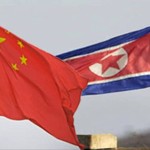 GOVERNANCE AND CIVIL SOCIETY: China’s North Korean pivot, Yoon Young-kwan, Korea Herald (10 July 213)
GOVERNANCE AND CIVIL SOCIETY: China’s North Korean pivot, Yoon Young-kwan, Korea Herald (10 July 213)
China appears to be making a “North Korea pivot” and amending its policy towards the DPRK. The ROK Foreign Minister stated that China now views the DPRK as more of a strategic burden than buffer state. China may now see denuclearization of the peninsula as a higher priority than stabilization and has become more open with its criticism of the DPRK. DPRK leader Kim Jong-un is reported to be planning a trip to China in the fall.
- China stands firm against nuclear N. Korea: S. Korean FM, Yonhap (11 July 2013)
- Kim Jong-un ‘to visit China this fall’, Chosun Ilbo (12 July 2013)
 CLIMATE CHANGE ADAPTATION: Building urban resilience: principles, tools, and practice, Jha, Abhas K et al., AusAID and the World Bank (2013) [14.63 MB, PDF]
CLIMATE CHANGE ADAPTATION: Building urban resilience: principles, tools, and practice, Jha, Abhas K et al., AusAID and the World Bank (2013) [14.63 MB, PDF]
Urbanization, environmental degradation, climate change, and development-related processes and planning shape and configure hazards. The complexity of systems and uncertainty about the impact of development and climate change affect the way we understand and manage risks when we build and expand cities. It is necessary to recognize that our underlying assumptions could be wrong, and in any case the risks of disasters cannot be eliminated completely. However, scalable methodologies and practical tools for risk assessment need to be demonstrated for use of city-level investment decisions.
- Tools for building urban resilience: integrating risk information into investment decisions – pilot cities report – Jakarta and Can Tho, AusAID and the World Bank (2012) [1.46 MB, PDF]
- Building urban resilience to climate change: what works where, and why, Institute for Social and Environmental Transition-International (2012) [1.46 MB, PDF]
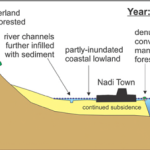 CLIMATE CHANGE AND SECURITY: Climate change, security and peace: the role of the European Union, Angela Liberatore, Review of European Studies, vol. 5, no. 3 (5 July 2013)
CLIMATE CHANGE AND SECURITY: Climate change, security and peace: the role of the European Union, Angela Liberatore, Review of European Studies, vol. 5, no. 3 (5 July 2013)
The European Union’s active securitisation of climate change through proposed incorporation into the Common Security and Defence Policy tests the EU’s project of bringing to “international problems the sense of common responsibility and structures of contractual politics”. Debate anticipates sharply conflicting choices about civilian-military repertoires of response and the aims and modalities of future interventions through Union Common Security missions.
- Report on the role of the Common Security and Defence Policy in case of climate-driven crises and natural disasters, Committee on Foreign Affairs, European Parliament, A7-0349/2012 (23 October 2012)
- UN Security Council: playing a role in the international climate change regime? Stephanie Cousins, Global Change, Peace and Security, vol. 25, no. 2, (2013)
- The end of the Pacific? Effects of sea level rise on Pacific Island livelihoods, Patrick D. Nunn, Singapore Journal of Tropical Geography, vol. 34, no. 2 (July 2013)
The Nautilus Peace and Security Weekly Report presents articles and full length reports each week in six categories: Austral security, nuclear deterrence, energy security, climate change and security, the DPRK, climate change adaptation and governance and civil society. Our team of contributors carefully select items that highlight the links between these themes and the three regions in which our offices are found—North America, Northeast Asia, and the Austral-Asia region.
Subscribe to NAPSNet to receive free weekly email reports
Editor
Contributors
- Deterrence: Peter Hayes
- Governance and Civil Society: Dyana Mardon
- Climate Change Adaptation: Saleem Janjua
- DPRK: Roger Cavazos
- Energy Security: Nikhil Desai
- Climate Change and Security: Richard Tanter

